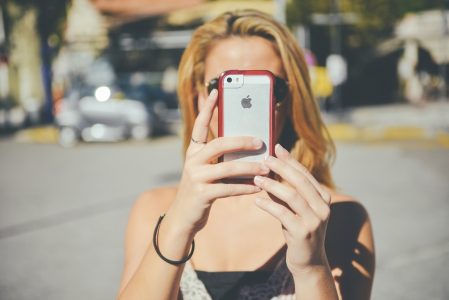Sharing Selfies Can Make You Happier and More Confident - Dispatch Weekly
September 16, 2016 - Reading time: 4 minutes

Research by Computer scientists at the University of California, Irvine (UCI) has found that taking selfies on your cellphone increases positive feelings amongst college students.
The Study, Psychological State and Positivity
The study that appears in the journal of Psychology of Well-Being, conducted exercises through smartphone technology to examine individual’s psychological and emotional states.
The scientists found that taking certain types of images has the power to boost mood, Reducing stress and loneliness
The study investigated 41 college students over 4 weeks, asking them to capture one of three images a day: a smiling selfie, a photo of something that made the happy, or a photo of something that would make someone else happy (sending the image to the person).
The individuals were randomly assigned to take photos of one type.
Using a survey app on their cellphones, the participants were asked to fill in their mood three times a day.
The findings: Confidence and Connection
All three images had positive results. The selfie group were more “confident and comfortable,” the second group were “more reflective and appreciative” and the group who took photos for others felt calmer and more connected with friends and loved ones.
Picture Taking and Happiness
Lead author Yu Chen, a postdoctoral scholar in UCI’s Department of Informatics said:
“Our research showed that practicing exercises that can promote happiness via smartphone picture taking and sharing can lead to increased positive feelings for those who engage in it.”
“The good news is that despite their susceptibility to strain, most college students constantly carry around a mobile device, which can be used for stress relief.”
“Added to that are many applications and social media tools that make it easy to produce and send images.”
Selfies: the Statistics
According to Stylcaster in 2014, more than 1 million selfies were taken a day.
These were distributed through Facebook (48 percent), WhatsApp and text (27 percent), Twitter (9 percent) Instagram (8 percent) and Pinterest (2 percent).
According to Samsung, selfies make up 30 percent of the photos taken by people between the ages of 18-24.

Positive Computing
Despite negative coverage on selfies in the media, including claims that selfie taking may lead to narcissism, anxiety and addiction, Gloria Mark, a professor of informatics said:
“There have been expanded efforts over the past decade to study what’s become known as ‘positive computing,’ and I think this study shows that sometimes our gadgets can offer benefits to users.”

DW Staff
David Lintott is the Editor-in-Chief, leading our team of talented freelance journalists. He specializes in covering culture, sport, and society. Originally from the decaying seaside town of Eastbourne, he attributes his insightful world-weariness to his roots in this unique setting.




